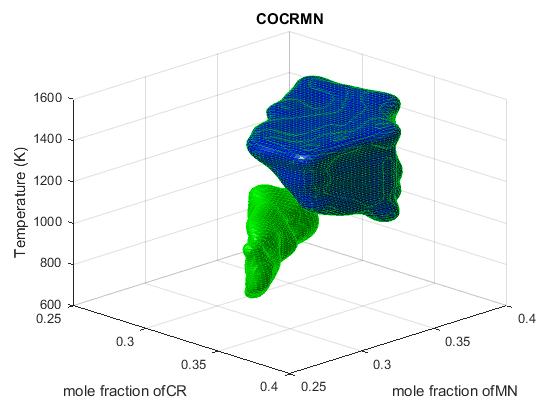In order to come closer to materials design and discovery without having to rely on exhaustive computational/experimental approaches, the constraint satisfaction problem (CSP) approach is used. This approach uses efficient searching algorithms to evaluate a design space against user-defined constraints, such as phase stability. Currently, the CSP approach has been coupled with Thermo-Calc software to search high-entropy alloy systems as well as liquid-metal dealloying systems. The CSP algorithm is provided by the Design Systems Lab from Mechanical Engineering and the work on liquid-metal dealloying systems is a collaboration with the Demkowicz Group from Materials Science and Engineering.

Results of a single-phase search with the CSP in a near-equiatomic ternary (green is HCP, blue is BCC)
